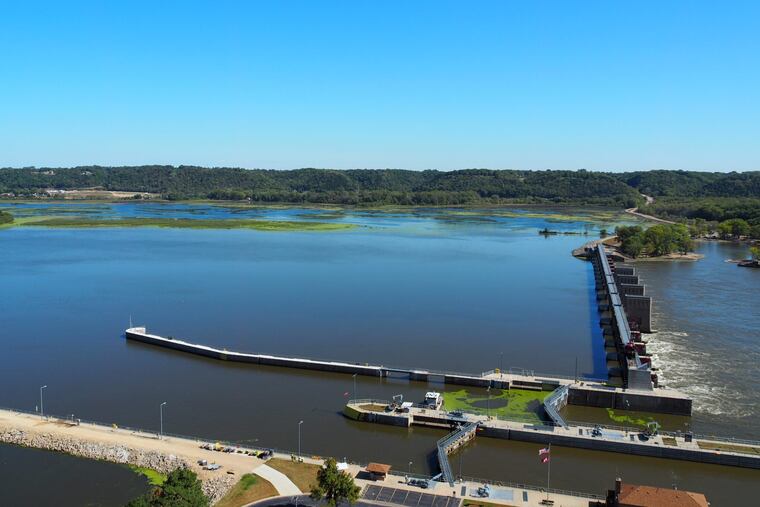I drove 9,000 miles, visited 25 states, and asked 200 Americans: What does it mean to be a good citizen? | Opinion
My conversations and time outside of the Philadelphia bubble dispelled the notion that Americans don't share a vision for the country.

The violence of the last week and the ending of the contentious midterm elections are further proof that America has become a political tinderbox — one in which roughly half of Democrats and Republicans alike report they are afraid of the other political party. With 77 percent of voters also telling exit polls on Tuesday that the country is becoming increasingly divided, Americans will have to do something we seem quite unwilling to do: Talk openly with the other side.
Last year, I departed my sheltered Bryn Mawr home in my old Honda CRV in an effort to find out whether Americans have truly nothing in common and whether it's impossible to engage with people across the aisle. I drove more than 9,000 miles and interviewed more than 200 Americans in 25 states. I spent time on a military base and an indigenous reservation, in small red towns and large blue cities, and asked people everywhere: What does it mean to be a good citizen?
My conversations and time outside of the Philadelphia bubble dispelled my – and many others' – notion that Americans of different political leanings do not share anything in their vision for the country. In fact, Americans from both parties believe in four civic ideals that are fundamental to our country and that, as a result, can be meaningful conversation starters for those who want to reach out to members of the other party.
Respect: People want to feel respected. Idil Ozer, a Turkish American immigrant who worked in politics when I spoke with her in Washington, D.C., went to work in Democratic politics because she believes women are not respected enough in conversation or in policy. Meanwhile, Terri Stine, a self-described Christian woman who owns a Christian candle shop in Waukesha, Wis., said that she believed showing respect – through listening – is the essential job of a good citizen. She told her prayer group after President Trump won: "Democrats are upset, they're angry. We have to take that seriously. We can't be judging them or saying, ha-ha we won. We need to sit down and talk with them and ask, 'Why are you upset?' "
Community: In the midst of a time where it feels as if the country is polarized beyond repair, publications such as the New York Times and the Atlantic have profiled thriving American communities, and my interviews captured that phenomenon, too. Taj Suleyman, a Sudanese refugee who now lives in Dubuque, Iowa, said that the people around him allowed him to thrive in the United States: "I think that I learned what it means to be an American from the people in Salt Lake. Yes, I was on government programs. But what made a difference was the community. The people who helped with my language and taught me to navigate the system were amazing. There was a sense of belonging because of the people around me." Others I spoke with put their commitment to community into action. Chris Wood, a military veteran in Daleville, Ala., hosts a free Thanksgiving dinner every year at his BBQ shop for those who cannot afford their own Thanksgiving. He started the dinner because he was concerned that people around him were hungry and alone on a day when people should share in joy and reflection together.
Freedom: Mentioned in more than 60 percent of my conversations, freedom was the idea my interviewees held most dear. The stereotype is that conservatives love freedom, but when asked what was special about living in America, a close to equal proportion of self-identified Democrats mentioned freedom as the most integral part of American life. Citizens especially noted the freedom to be themselves as why they love this country. Jin Park, an undocumented immigrant and immigrant-rights activist who graduated from Harvard last fall, told me: "This idea of self-determination, that you're the one who determines your destiny. That's unique to America!" Stan Hubbard, the CEO of Reelz TV, echoed Jin, saying that the freedom to pursue "happiness as one sees fit" sets the United States apart from other nations.
"The Melting Pot": The term itself has been and remains a contentious one – but roughly 50 interviewees mentioned it or a concept like it. Unique to America, people told me, is that it doesn't matter where people come from or what their education level is. People who believe in this country and build their lives here are as American as anyone born in the country. Notably, in what may surprise liberal readers, many of the conservatives I spoke with felt this way. John Meiser, a Trump voter in Mishawaka, Ind., noted the country must go one step further to live up to this ideal. To be a country where anyone is truly welcome, he said, Americans must reckon with the historical and continued persecution of non-white, non-Protestant Americans.
Not everyone agreed on the exact details of these ideas. The areas of greatest contention were whether and how Americans should explicitly show respect to the government and how much assimilation citizens should expect of immigrants.
These disagreements aside, spending time with people far different from myself showed me that citizens of communities like Philadelphia's can and should take it upon themselves to begin a new conversation, one that focuses on the ideals that unite us and rebuilds trust among one another and a belief in democracy in the process. We don't agree on everything — but we do agree on enough that we can work together to start to heal our civic culture and our country.
James Piltch is a graduate of the Shipley School in Bryn Mawr. He now works as a research assistant at the Harvard Kennedy School.